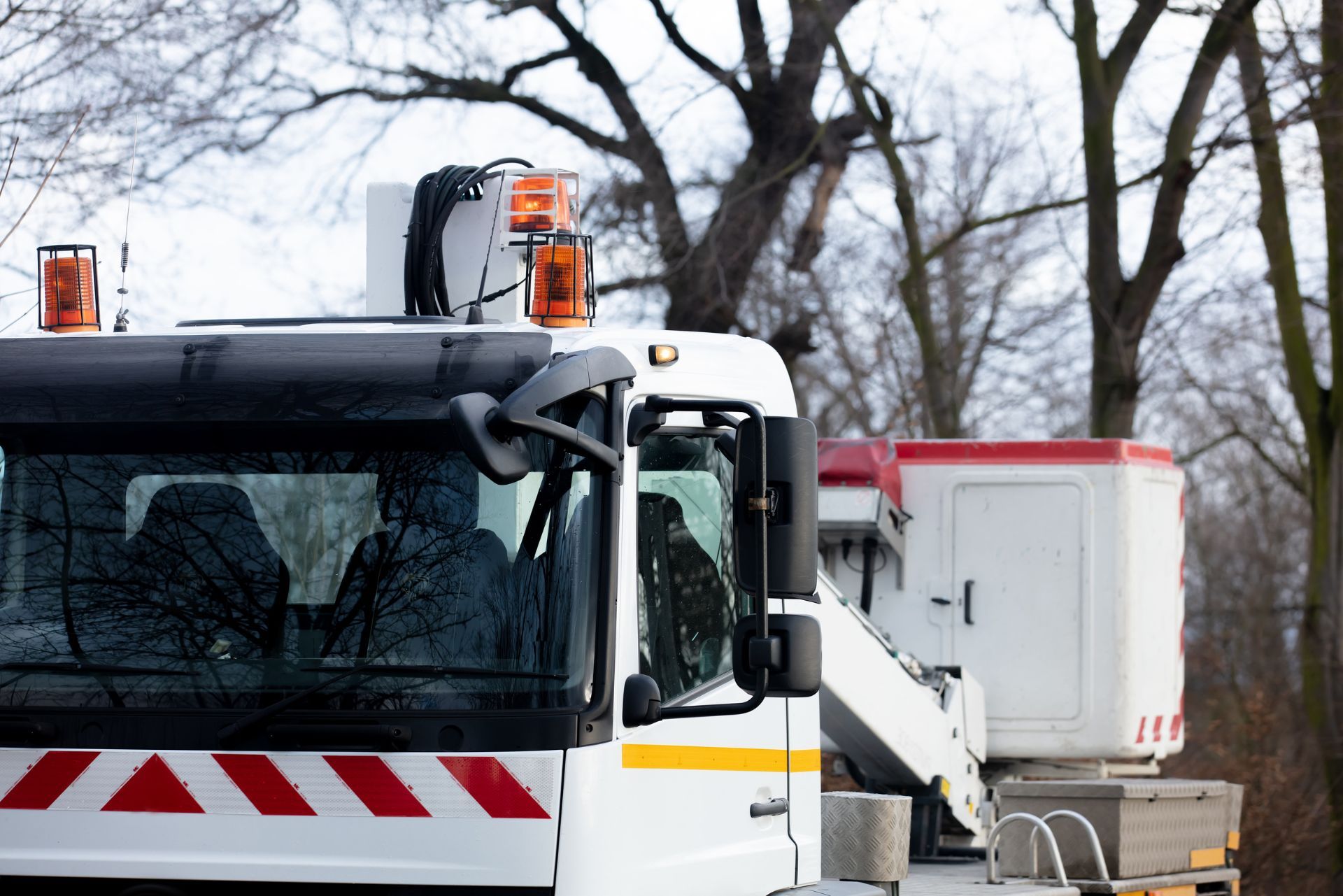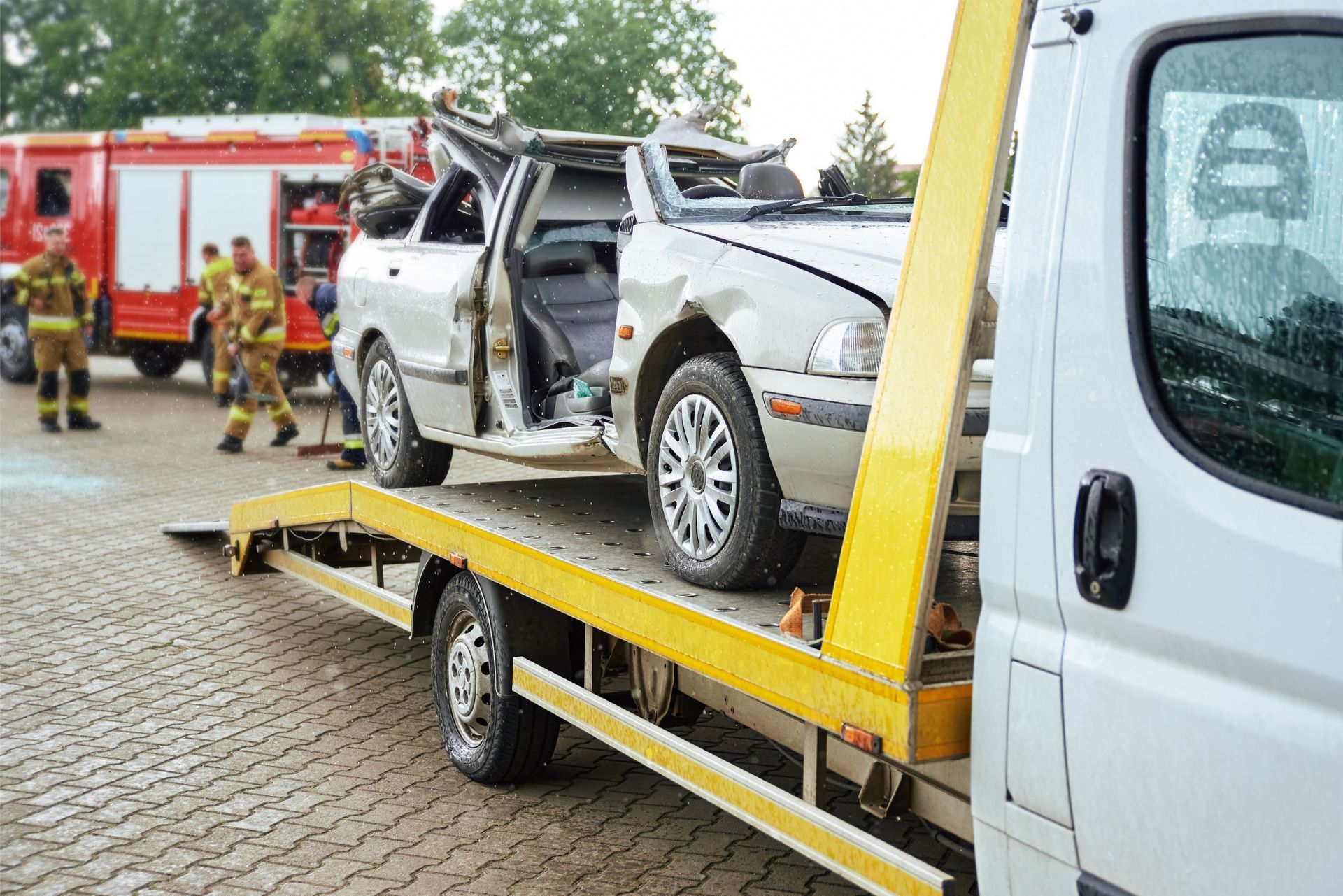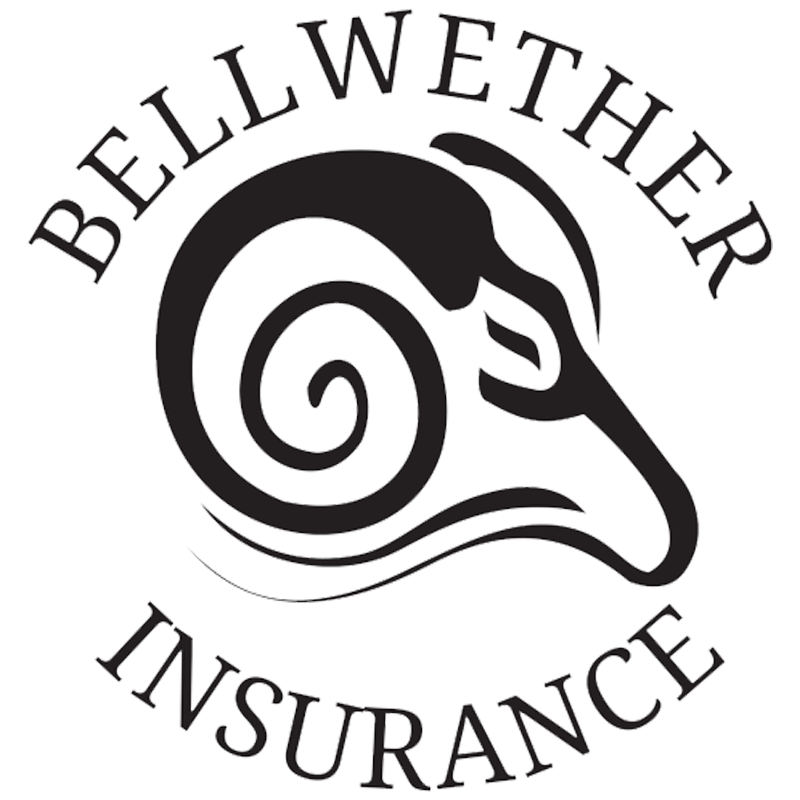Ohio Tow Truck Insurance

Index
Contact Us
Phone
216-600-2828
Location
100 N. Center Street PO Box 627 LaGrange, OH 44050
Operating a tow truck business in Ohio comes with unique challenges and responsibilities, not least of which is securing the right insurance coverage. Tow truck insurance is essential to protect your business, your drivers, and your clients. Understanding the specific requirements and options available in Ohio can save you from costly legal issues and financial losses down the road.
This comprehensive guide will walk you through everything you need to know about
Ohio tow truck insurance—from state regulations and coverage types to cost factors and tips for finding the best policy.
Understanding Ohio Tow Truck Insurance Requirements
Before diving into insurance options, it’s important to grasp the legal landscape governing tow truck operations in Ohio. The state has specific insurance requirements designed to ensure that tow truck operators maintain adequate protection for themselves and others on the road.
Ohio State Insurance Regulations for Tow Trucks
Ohio classifies tow trucks under commercial vehicles, which means they must comply with commercial auto insurance requirements. According to the Ohio Bureau of Motor Vehicles (BMV), tow trucks must carry minimum liability coverage to legally operate on public roads.
As of 2024, the minimum liability coverage requirements for commercial vehicles in Ohio are:
- Bodily Injury Liability: $25,000 per person and $50,000 per accident
- Property Damage Liability: $25,000 per accident
However, these minimums often fall short for tow truck businesses because of the high-risk nature of towing operations. Many businesses opt for higher limits to protect against potential lawsuits and claims. In fact, it is not uncommon for tow truck operators to seek coverage that includes comprehensive and collision insurance, which can safeguard their vehicles against damage from accidents, theft, or vandalism, thereby ensuring business continuity even in adverse situations.
Special Licensing and Permits
In addition to insurance, tow truck operators in Ohio must obtain the proper licensing and permits. Tow truck drivers generally need a Commercial Driver’s License (CDL) if the vehicle exceeds certain weight limits or if they transport vehicles across state lines.
Moreover, some Ohio cities and counties require additional permits or registration for towing businesses, especially those operating in impound or recovery services. These regulations can impact insurance requirements, so it’s crucial to check local laws where your business operates. Additionally, operators must often undergo background checks and training programs to ensure they are well-versed in safe towing practices and customer service, which can further enhance their operational credibility and insurance profiles.
Furthermore, understanding the nuances of local regulations can also lead to potential cost savings on
insurance premiums. For instance, some regions may offer incentives for businesses that implement safety measures or participate in community programs, which can not only lower insurance costs but also improve the overall reputation of the towing company. By staying informed about both state and local requirements, tow truck operators can better navigate the complexities of insurance and compliance, ultimately leading to a more successful and secure business operation.

Types of Tow Truck Insurance Coverage in Ohio
Tow truck insurance isn’t a one-size-fits-all product. Different types of coverage protect your business from various risks associated with towing operations. Understanding these coverage types helps you build a policy that fits your specific needs.
1. Commercial Auto Liability Insurance
This is the foundational coverage for any tow truck business. Commercial auto liability insurance covers bodily injury and property damage caused by your tow truck drivers while operating the vehicle. It protects your business if you are found legally responsible for an accident.
Given the nature of towing, which often involves maneuvering in tight spaces and handling disabled vehicles, maintaining robust liability coverage is critical. Additionally, the high volume of roadside emergencies can lead to increased risks, making it essential to have adequate liability limits to safeguard against potential lawsuits that could arise from accidents.
2. Physical Damage Coverage (Collision and Comprehensive)
Physical damage coverage protects your tow truck itself. Collision insurance covers damage from accidents, while comprehensive insurance covers non-collision-related damage such as theft, vandalism, or natural disasters.
Since tow trucks are significant investments and essential to your business operations, protecting them against damage is a practical necessity. Moreover, considering the wear and tear that comes from frequent use, having this coverage ensures that you can quickly repair or replace your vehicles, minimizing downtime and maintaining your service efficiency.
3. Garage Liability Insurance
Garage liability insurance covers your business for liability arising from garage operations, including towing, vehicle storage, and repair work. This coverage is especially important if your business offers impound or storage services.
It protects against claims related to property damage or bodily injury that might occur on your premises or during your towing operations. Furthermore, this insurance can also cover incidents that occur while vehicles are in your custody, which is crucial for maintaining trust with your clients and protecting your business reputation.
4. Garagekeepers Insurance
Garagekeepers insurance provides coverage for vehicles you are towing or storing in your care, custody, or control. For example, if a vehicle you are towing gets damaged or stolen, this coverage helps cover the loss.
This is a crucial policy for tow truck businesses that frequently store vehicles temporarily or handle high-value cars. Additionally, having garagekeepers insurance can enhance your business’s credibility, as clients are more likely to trust a towing service that can assure them their vehicles are protected while in your possession.
5. On-Hook Towing Insurance
On-hook towing insurance specifically covers damage to vehicles while they are being towed. This coverage is vital because towing can sometimes cause damage to the towed vehicle, leading to costly claims.
Many standard commercial auto policies do not include on-hook coverage, so it often requires a separate endorsement or policy. Understanding the nuances of this coverage can save your business from significant financial losses, especially in cases where the towed vehicle is a luxury or classic car, where repair costs can be exorbitant.
6. Workers’ Compensation Insurance
If you employ drivers or other staff, Ohio law requires you to carry workers’ compensation insurance. This coverage protects your employees if they get injured on the job and helps shield your business from related lawsuits.
In the towing industry, where employees are often exposed to hazardous conditions, having workers’ compensation insurance is not just a legal obligation but also a moral one. It ensures that your team receives the necessary medical care and compensation for lost wages, fostering a safer work environment and promoting employee loyalty and morale.
Factors Influencing Ohio Tow Truck Insurance Costs
Insurance premiums for tow trucks in Ohio vary widely based on several factors. Understanding these can help you manage costs and find the best value for your coverage.
Vehicle Type and Usage
The type of tow truck you operate—whether it’s a light-duty flatbed, medium-duty wheel-lift, or heavy-duty rotator—affects your insurance rates. Heavier trucks and those used for specialized towing generally carry higher premiums due to increased risk and repair costs.
Additionally, how often and where you operate matters. Tow trucks that work in urban areas with heavy traffic or hazardous conditions may face higher rates than those operating in rural or low-traffic zones. Urban environments not only present more opportunities for accidents but also often require more specialized equipment and training, which can further influence insurance costs. For instance, if your tow truck frequently navigates through congested city streets or responds to accidents on highways, your risk profile is inherently higher, prompting insurers to adjust premiums accordingly.
Driver Experience and Safety Records
Insurance companies assess the experience and driving records of your drivers. Experienced drivers with clean records can help lower premiums, while a history of accidents or violations will increase costs.
Investing in driver safety training and maintaining strict hiring standards can positively impact your insurance rates over time. Furthermore, many insurance providers offer discounts for companies that implement ongoing training programs or certification courses for their drivers. This not only enhances safety on the road but also demonstrates to insurers that you are proactive about risk management, potentially leading to lower premiums as a result.
Coverage Limits and Deductibles
Higher coverage limits provide more protection but come with higher premiums. Similarly, choosing lower deductibles means you pay less out-of-pocket after a claim but results in higher monthly or annual premiums.
Balancing coverage limits and deductibles according to your risk tolerance and budget is key to optimizing your insurance costs. It’s also important to regularly review your coverage as your business grows or changes. For instance, if you expand your fleet or start offering new services, adjusting your coverage limits may be necessary to ensure you remain adequately protected while also managing costs effectively.
Claims History
Your business’s claims history influences your insurance rates. Frequent claims or large payouts signal higher risk to insurers and can lead to increased premiums or difficulty obtaining coverage.
Maintaining a clean claims record by implementing safety protocols and proper vehicle maintenance can help keep costs down. Additionally, establishing a strong relationship with your insurance agent can provide valuable insights into how to navigate claims and mitigate future risks. Regularly reviewing your claims process and learning from past incidents can also contribute to a more favorable claims history, ultimately benefiting your bottom line.
Location and Operating Area
Insurance rates can vary by location due to differences in traffic density, crime rates, and weather risks. Tow truck businesses operating in metropolitan areas like Columbus, Cleveland, or Cincinnati may face higher premiums compared to those in less populated regions.
Moreover, specific local regulations and requirements can also play a significant role in determining insurance costs. For example, certain cities may have stricter towing regulations or higher liability requirements, which can necessitate additional coverage. Understanding the local landscape, including seasonal weather patterns that may affect road conditions, is crucial for tow truck operators in Ohio. Areas prone to severe winter weather may require additional coverage for snow and ice-related incidents, further influencing overall insurance expenses.
How to Choose the Best Tow Truck Insurance in Ohio
With so many coverage options and variables, selecting the right tow truck insurance policy can seem overwhelming. Here are some practical tips to help you make an informed decision.
Assess Your Business Needs Thoroughly
Start by evaluating your specific business operations. Consider the types of towing you perform, the number of vehicles and drivers, and any additional services like storage or roadside assistance.
This assessment will guide you in choosing the necessary coverage types and limits, avoiding underinsurance or paying for unnecessary policies. For instance, if you primarily handle emergency towing, you may need higher liability limits compared to a business that focuses on non-emergency services. Additionally, consider the geographical areas you serve, as different regions may have varying risks associated with weather conditions or traffic patterns that could impact your operations.
Work with a Specialist Insurance Agent
Tow truck insurance is a niche market with unique risks. Partnering with an insurance agent or broker who specializes in commercial vehicle or towing insurance can make a significant difference.
Specialists understand the industry nuances and can help tailor coverage to your needs while finding competitive rates. They can also provide valuable insights into common claims in the towing industry, helping you to anticipate potential risks and adjust your coverage accordingly. A knowledgeable agent can be an invaluable resource in navigating the complexities of insurance policies and ensuring that you are adequately protected.
Compare Multiple Quotes
Don’t settle for the first insurance quote you receive. Comparing multiple offers from different insurers allows you to evaluate coverage options, exclusions, and pricing.
Online comparison tools and direct consultations with agents can streamline this process. When comparing quotes, pay attention not only to the premium costs but also to the deductibles and the specific coverages included. Some insurers may offer lower premiums but with higher deductibles or less comprehensive coverage, which could end up costing you more in the long run if you need to file a claim.
Check Insurer Reputation and Financial Stability
Choosing a reputable insurance company with strong financial ratings ensures that your claims will be handled efficiently and that the insurer can meet its financial obligations.
Resources like AM Best, J.D. Power, and the Better Business Bureau provide insights into insurer reliability and customer satisfaction. Additionally, consider seeking feedback from other tow truck operators in your area about their experiences with various insurers. Personal recommendations can often lead you to companies that provide exceptional service and support, which is crucial when you need to file a claim or have questions about your policy.
Review Policy Exclusions and Endorsements Carefully
Insurance policies often include exclusions or require endorsements for specific coverages like on-hook towing or roadside assistance. Understanding these details prevents surprises during claims.
Ask your agent to explain any unclear terms and ensure your policy fully covers your operational risks. It's also wise to inquire about optional endorsements that can enhance your coverage, such as coverage for equipment breakdown or rental reimbursement while your tow truck is being repaired. These additional protections can provide peace of mind and safeguard your business from unexpected expenses that could arise during the course of operations.

Common Challenges and How to Overcome Them
Tow truck businesses in Ohio face several challenges related to insurance and risk management. Being proactive can help mitigate these issues.
Handling High-Risk Claims
Towing operations inherently carry risks such as vehicle damage, accidents, and liability claims. When claims occur, they can lead to premium increases or policy cancellations.
To minimize risks, implement rigorous driver training, maintain vehicles regularly, and enforce safety protocols. Additionally, documenting incidents thoroughly helps in managing claims effectively.
Navigating Regulatory Changes
Insurance requirements and towing regulations can evolve, impacting your coverage needs. Staying informed about Ohio state laws and local ordinances is crucial.
Regularly consult with your insurance agent and industry associations like the Ohio Towing and Recovery Association to keep abreast of changes.
Managing Costs Without Sacrificing Coverage
Balancing affordable premiums with comprehensive coverage is a common concern. Consider bundling policies, increasing deductibles, or investing in safety programs that may qualify you for discounts.
Periodic policy reviews ensure your coverage aligns with your current business size and risk profile, preventing overpayment.
The Importance of Tow Truck Insurance for Ohio Businesses
Tow truck insurance is not just a legal requirement; it’s a vital safeguard for your business’s longevity and reputation. The towing industry involves significant liability exposure, including accidents, vehicle damage, and property claims.
Without proper insurance, a single claim could jeopardize your financial stability or even force your business to close. Comprehensive insurance coverage provides peace of mind, allowing you to focus on growing your business.
Moreover, many clients and contracts require proof of insurance before you can provide services, making it essential for securing business opportunities.
Conclusion
Ohio tow truck insurance is a complex but essential aspect of running a successful towing business. Understanding state requirements, coverage types, cost factors, and best practices for selecting insurance can protect your business from unexpected financial burdens.
By investing in the right insurance policies and maintaining a strong safety culture, tow truck operators in Ohio can navigate the risks of the industry confidently and sustainably.
For any tow truck business owner in Ohio, securing comprehensive insurance coverage isn’t just a regulatory box to check—it’s a strategic move to safeguard your livelihood and reputation in a competitive market.


